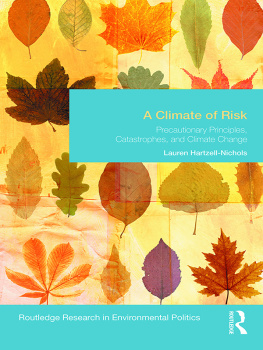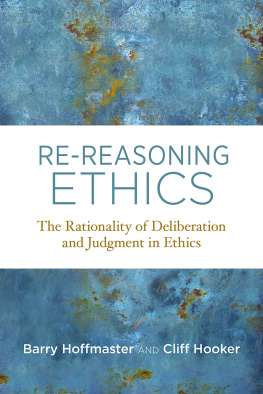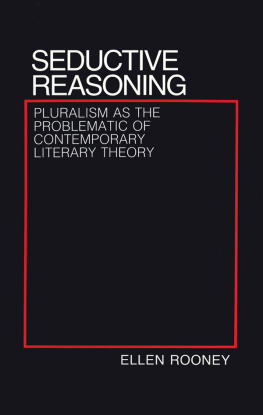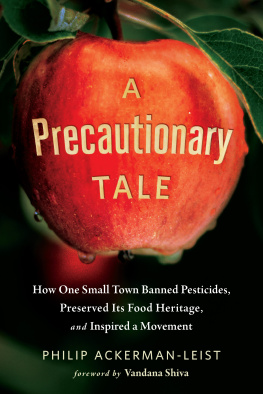Reber - Precautionary principle, pluralism and deliberation: sciences and ethics
Here you can read online Reber - Precautionary principle, pluralism and deliberation: sciences and ethics full text of the book (entire story) in english for free. Download pdf and epub, get meaning, cover and reviews about this ebook. City: Chichester, year: 2017;2016, publisher: John Wiley & Sons Inc;Wiley-ISTE, genre: Romance novel. Description of the work, (preface) as well as reviews are available. Best literature library LitArk.com created for fans of good reading and offers a wide selection of genres:
Romance novel
Science fiction
Adventure
Detective
Science
History
Home and family
Prose
Art
Politics
Computer
Non-fiction
Religion
Business
Children
Humor
Choose a favorite category and find really read worthwhile books. Enjoy immersion in the world of imagination, feel the emotions of the characters or learn something new for yourself, make an fascinating discovery.
- Book:Precautionary principle, pluralism and deliberation: sciences and ethics
- Author:
- Publisher:John Wiley & Sons Inc;Wiley-ISTE
- Genre:
- Year:2017;2016
- City:Chichester
- Rating:4 / 5
- Favourites:Add to favourites
- Your mark:
- 80
- 1
- 2
- 3
- 4
- 5
Precautionary principle, pluralism and deliberation: sciences and ethics: summary, description and annotation
We offer to read an annotation, description, summary or preface (depends on what the author of the book "Precautionary principle, pluralism and deliberation: sciences and ethics" wrote himself). If you haven't found the necessary information about the book — write in the comments, we will try to find it.
Reber: author's other books
Who wrote Precautionary principle, pluralism and deliberation: sciences and ethics? Find out the surname, the name of the author of the book and a list of all author's works by series.
Precautionary principle, pluralism and deliberation: sciences and ethics — read online for free the complete book (whole text) full work
Below is the text of the book, divided by pages. System saving the place of the last page read, allows you to conveniently read the book "Precautionary principle, pluralism and deliberation: sciences and ethics" online for free, without having to search again every time where you left off. Put a bookmark, and you can go to the page where you finished reading at any time.
Font size:
Interval:
Bookmark:

Responsible Research and Innovation Set
coordinated by
Bernard Reber
Volume 4
Bernard Reber

First published 2016 in Great Britain and the United States by ISTE Ltd and John Wiley & Sons, Inc.
Apart from any fair dealing for the purposes of research or private study, or criticism or review, as permitted under the Copyright, Designs and Patents Act 1988, this publication may only be reproduced, stored or transmitted, in any form or by any means, with the prior permission in writing of the publishers, or in the case of reprographic reproduction in accordance with the terms and licenses issued by the CLA. Enquiries concerning reproduction outside these terms should be sent to the publishers at the undermentioned address:
ISTE Ltd
27-37 St Georges Road
London SW19 4EU
UK
www.iste.co.uk
John Wiley & Sons, Inc.
111 River Street
Hoboken, NJ 07030
USA
www.wiley.com
ISTE Ltd 2016
The rights of Bernard Reber to be identified as the author of this work have been asserted by him in accordance with the Copyright, Designs and Patents Act 1988.
Library of Congress Control Number: 2016950825
British Library Cataloguing-in-Publication Data
A CIP record for this book is available from the British Library
ISBN 978-1-78630-100-0
Responsibility should be central to the design of Responsible Research and Innovation (RRI) strategies; in practice, however, this is not always the case. Research work and practical applications often focus on separate elements or constraints involved in RRI, or tracking projects prefiguring it, rather than considering inquiries and solutions built upon the richness of moral responsibility. Inquiry in this area may be empirical or normative or, better still, combine the best elements from both reciprocal approaches.
Previous volumes in the Responsible Research and Innovation series have addressed, seriously and confidently, the issue of responsibility from a variety of angles, demonstrating the breadth and power of this concept. This diversity should not be seen as a form of lazy ethical relativism, which is often implicit and makes the concept of responsibility appear inaccessible. Like La Fontaines fox, which should be used creatively in order to respond to new situations, contexts and technical innovations transforming them. Moral responsibility should not be considered synonymous with obedience, compliance, repetition or indiscriminate application.
The intrinsic nature of responsibility has not always been so easily forgotten, and was not (as so often happens) limited to faulty and impotent rhetoric expressed in programs, platforms or the media. Responsibility has been used as a principle for political action, as original and promising with its potential displayed on the international stage. Promoted and defended by the European Union, this notion of responsibility was embodied in the form of the precautionary principle. This meta-principle, encapsulating several other principles, presents a significant advantage, in that it can be applied to, and used to connect, a wide variety of domains such as the sciences, ethics, politics and economics. As the principle took off, it was subject to a variety of interpretative controversies and attacks, due to the way in which it disrupted existing modes of operation and, in some cases, established a new order. Enemies of the precautionary principle included a number of states, who attacked it in arenas such as the World Trade Organization; philosophers, opposed to a caricatured version of the principle; and, ironically, certain thurifers of the precautionary principle, who damaged its reputation by indiscriminate and unsuitable applications.
The purpose of this book is to provide a thorough and balanced examination of the precautionary principle, considering its huge potential to express responsibility in the fields of research and innovation. The precautionary principle has a key part to play in the face of the most disruptive innovations. It is one of the most creative innovations for implementing responsibility in response to new fears surrounding environmental resilience or emerging technologies. It also constitutes one of the most original and well-received proposals of the European Union. RRI owes a certain debt to this institution, and still has a lot to learn from the precautionary principle. In this work, we shall consider the ethics of the principle of responsibility.
The goal of this work is not simply to improve this meta-principle. We shall consider its interactions with ethical pluralism and with ethical and political deliberations, argumentation in context, and the challenges presented by the interdisciplinary approach in an uncertain climate. Taken separately, each problem extends the intention of this book outside of the sphere of RRI. Similarly, these problems need to be solved theoretically before any relevant practical application can be envisaged. A beneficial interplay also exists between practical and theoretical considerations; however, if these problems are not carefully considered from a theoretical perspective at the outset, application and, subsequently, standardization are impossible, whether in the field of research or innovation.
In this book, we shall consider a number of issues, centering on the collaborative choice of innovations and technologies, which will define the future of our world, and the way in which these worlds are to be evaluated in a context of scientific uncertainty and ethical indetermination, due to the existence of ethical pluralism. We shall begin by considering the famous Valladolid controversy concerning colonization of the New World. At present, we must consider a different form of colonization of new worlds, not in terms of occupying territories, but rather in terms of a variety of possible futures for our shared planet. An alternative title for this book might be Deliberations on the Best Possible Worlds.
These core aspects of RRI must be taken seriously. Following over 30 years of experiments in the field of Participatory Technology Assessment (PTA), the time has now come to establish a more coherent version; the same may be said of RRI, which, in some ways, follows on from PTA. The existence of the PTA concept is laudable, and it offers perspectives on the potential offered by reasoned and careful development of RRI.
Whilst RRI promotes the participation of interested parties or citizens, anticipative governance and due consideration of ethics, a number of theoretical and practical issues still need to be resolved. Although some of these issues have been considered in the context of PTA, no satisfactory solutions have been found.
This set of problems, which includes scientific, ethical, political and economic dimensions, may be summarized in the form of a question:
How can we deliberate together, on the basis of preliminary assessments taken from a large number of actors with different and contrasting abilities and expertise (because we include the participation of ordinary citizens, experts and stakeholders), following guidelines taken from democratic theories, concerning issues centering on innovative and controversial technologies with the potential to cause serious and/or irreversible damage?
In more philosophical terms, the issue may be expressed as follows:
Next pageFont size:
Interval:
Bookmark:
Similar books «Precautionary principle, pluralism and deliberation: sciences and ethics»
Look at similar books to Precautionary principle, pluralism and deliberation: sciences and ethics. We have selected literature similar in name and meaning in the hope of providing readers with more options to find new, interesting, not yet read works.
Discussion, reviews of the book Precautionary principle, pluralism and deliberation: sciences and ethics and just readers' own opinions. Leave your comments, write what you think about the work, its meaning or the main characters. Specify what exactly you liked and what you didn't like, and why you think so.













